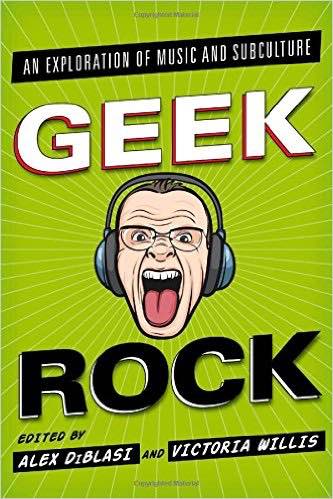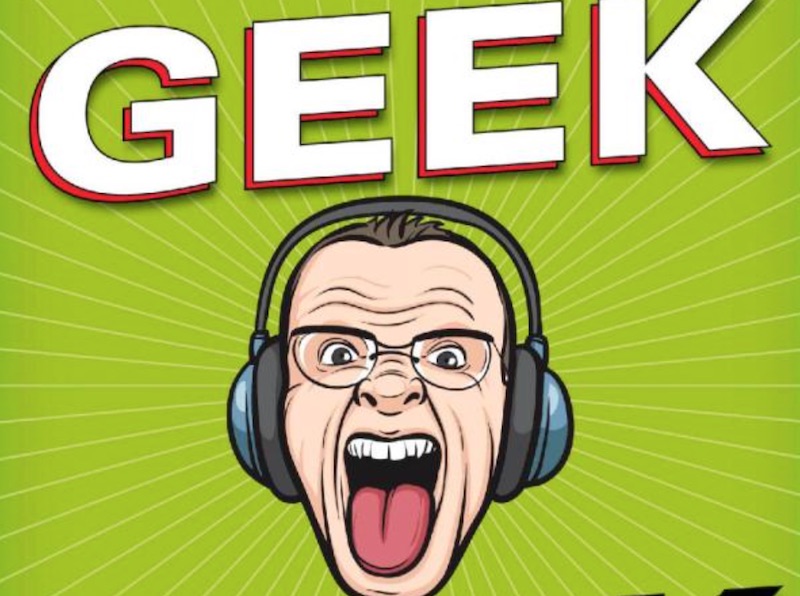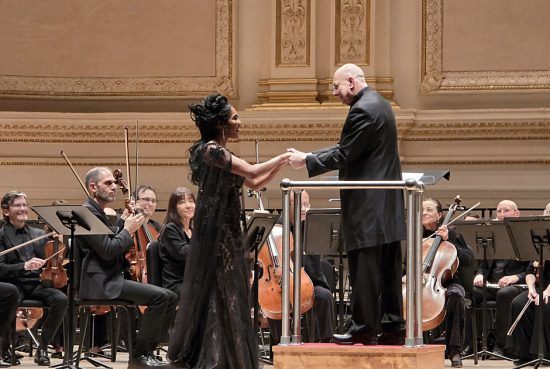To the misinformed, geek rock may seem an oxymoron. In the past, geeks were seen as anything but cool, while rock continues to be viewed as popular and, well, cool. But these days geeks are very cool (and, in some cases, very rich), and those who proudly wear that label are seen as individuals who are, according to Wikipedia, “interested in a subject (usually intellectual or complex) for it’s own sake.”
No surprise, then, that there are many musicians and fans who enthusiastically identify with the geek rock label. Perhaps the most famous geek rocker was Frank Zappa whose body of work continues to be listened to and studied by those intrigued and excited by this artistic sub genre. Geek rock has grown and become more than a cult following. Alex DiBlasi and Vickie Willis tapped into this enthusiastic fan base with their book, Geek Rock: An Exploration of Music and Subculture. This knowledgable and music-savvy duo reached out to many pop culture scholars, writers, and journalists soliciting thoughtful, educational essays that have been complied into the bestselling book published by Rowan and Littlefield. The volume is encyclopedic in its scope but a delight to read for longtime geek rock fans and for those who are just discovering this important musical category which continues to influence artists worldwide.
 Alex, a contributor to Woman Around Town, including for his fascinating series, “American Weirdness,” has written extensively on The Kinks, The Who, The Monkees, Frank Zappa, and has also explored the influence of Eastern religion in popular music. A former New Yorker, Alex now makes his home in Portland, Oregon.
Alex, a contributor to Woman Around Town, including for his fascinating series, “American Weirdness,” has written extensively on The Kinks, The Who, The Monkees, Frank Zappa, and has also explored the influence of Eastern religion in popular music. A former New Yorker, Alex now makes his home in Portland, Oregon.
Vickie is a research analyst in the Office of Institutional Research at Georgia State University. Her research interests revolve around the intersections of rhetoric, music, an popular culture.
Alex and Vickie took time to answer some questions about their book. To purchase for yourself or that geek rock fan in your life, click on the title or book cover.
What is Geek Rock? Does that term describe the music, the artists, or the fans?
Vickie: Geek rock is smart music for smart people.
Alex: I like that. By geeks, for geeks.
Vickie: The lyrics frequently have more literary references, science, and lots of insider knowledge. Chiptunes, for example, are lost on people who don’t have any experience playing 8-bit NES games.
Alex: I would say this is a genre that is much more defined by its surrounding culture than by any set of musical characteristics. In this case, we have geek culture, with a pronounced interest in technology, science, and pop culture.
Who coined the term? Is it a mainstream term or more of a private, music/fan insiders term?
Vickie: I believe Nerfherder (an American band whose name comes from an insult Princess Leia says to Han Solo in The Empire Strikes Back) was the first group to use “geek rock” to describe their sound.
Alex: Weezer is another group who has owned the geek label.
Why should we care about “geek rock” in the lexicon of rock? What has it contributed to/how has it influenced music?
Vickie: It has been a heavy influence on indie rock, because it opened up what a song could be, could sound like, and could be about.
Alex: Several chapters in our collection talk at length about the subject of geek rock’s place in the much larger milieu of rock music. Taylor Peters’ chapter on The Mountain Goats examines singer/songwriter John Darnielle as a typical geek rocker, emblematic of hyper-whiteness, contrasting with and yet somehow also carrying on the mythical image of the guitar-slinging troubadour. Martina Topic’s chapter on Captain Beefheart, everybody’s favorite weirdo, examines his surreal persona compared to that of [Led Zeppelin front man] Robert Plant.
In the larger context of rock, it represents a subculture. It represents a set of the population, fans of rock music who identify either by label or by choice as geeks, nerds, or dorks, though I think that last one maybe has a negative connotation to it. These guys like rock and roll music, but where most rock is about chasing tail, or bragging about your car or expanding your consciousness, these are people whose interests, hobbies and activities are Dungeons and Dragons, cheesy sci-fi movies from the 1950’s, watching Star Trek, so the songs center around that lifestyle.
Would you say it’s a more inclusive genre?
Alex: Yes and no. In my chapter and the book’s introduction, we say that geek culture, until about ten years ago, was marginalized. To be a geek meant you were a punchline, a background character in the high school movie. At best you were a nebbish like Woody Allen, who has made an entire career out of playing a pessimistic nerd who can quote Western philosophy. Now, we see cute girls wearing t-shirts that say “I like nerds with glasses” on them. I do think that geek culture piggybacked off goth culture, another marginalized subculture that has grown exponentially. Everyone knows someone who identifies with this subculture. It’s more relatable.
By creating a space for geeks to express their geekiness, it sets boundaries and parameters, what is and is not geeky. It creates a space that is exclusive, particularly to women and people of color, especially to women. There have been tons of issues on the Internet with female video game reviewers and pop culture critics getting a ton of hateful, sexist comments from basement-dwelling Neanderthals who clearly have problems with women. It is an unfortunate side of geek culture that I feel deserves the criticism it receives and more. Its majority culture is still white males. I remember as a teenage video game player, when they announced that GTA San Andreas would have a black protagonist from the in-game equivalent of Compton, people got upset. This was in 2004. People felt like they couldn’t identify with the character, and so because of that they couldn’t empathize. I thought that was messed up.
It seems as though many artists who fall under the category of geek rock are Caucasian. Why does geek rock seem to be an inherently “white” genre of music, and what can or is being done to diversify it? If you agree, what is it about “geekiness” or “nerdiness” that creates this predominantly white stereotype?
Alex: Geek culture is still largely by, for, and even about white guys and white experiences. That said, a lot of science fiction, Star Wars, Avatar, Planet of the Apes, present heavy-handed metaphors for the brutality of Western colonialism, as well as commentaries on the dangers of fascism, imperialism, and over-reliance on technology…things invented by white guys. We are seeing changes, though. Fans are demanding more representation by women and people of color, not just in geek culture, but in mainstream entertainment.
I still wish there was more “geek” entertainment for women and people of color. I wish it wasn’t so centric around western morals, philosophies, and ideas. We had contributors from around the world, which Vickie and I were both really happy about. It was nice to not have a book written just from the American or Anglo-American perspective. Our Israeli contributor wrote about the Magnetic Fields. Martina Topic wrote about Captain Beefheart, who was from California. Ian Steinberg, our Canadian contributor, wrote about Devo, who hail from Akron, Ohio. The chapter on Devo examines Italian Futurism from the 1920’s as a major influence on the band. Caroline Gates-Shannon’s chapter talks about twee pop bands from England. Crash Test Dummies are Canadian. And of course, Zappa worked with artists from around the world.
Zappa famously had a racially integrated band throughout his entire career, right? How does that increase or decrease his geekiness?
Alex: Growing up in Lancaster, California, Frank was in R & B bands with kids his age who were black. He even talked in his autobiography about being detained by the police because the law enforcement didn’t like that he was encouraging racial integration. Him having a diverse band, in a lot of ways, goes against mainstream geekiness. He and George Duke co-wrote “Uncle Remus,” which was a profound statement on race relations. With Ray White and Ike Willis, he did “You Are What You Is,” a song that challenges the idea of being able to “perform” race. His social commentaries were always sharp, smart, and urgent.
The stuff that I would classify as geeky in Zappa’s discography are the songs about B-movies from the 50s, all the pop culture references, and his use of musical quotations in his own songs. As a listener, I think it’s safe to call Zappa a music geek. He talked about hunting down a record by [French composer] Edgard Varese as though he were on a sacred quest. Zappa had heard “Hound Dog” before Elvis ever did it, he famously wondered why that white boy was ruining his favorite Big Mama Thornton tune, but it was because he had an interest and curiosity in black culture. And isn’t curiosity a defining characteristic of geekiness? A desire to learn more?
Would you like to see the term enter the mainstream rock categories, perhaps even get a Grammy category?
Vickie: They Might Be Giants has won two Grammys.
Alex: Zappa won for Jazz From Hell in 1986 for “Best Rock Instrumental Performance,” (a jazz album winning a rock award? That’s the Grammys for you…) plus he was nominated in the Rock category for “Dancin’ Fool” and “Valley Girl,” two of his more famous tunes. I don’t think it needs its own award category.
Alex, you tap Frank Zappa as the godfather of geek rock. Why? Is that a description he would have embraced?
Alex: Zappa’s influence on geek rock can best be likened to Neil Young’s influence on grunge.
Alex, in your piece, you interviewed Frank Zappa bassist Art Barrow. Barrow stated he did not agree that Frank was “geeky.” How did this shape your chapter?
Alex: The large part of Art’s issue with the word geek was generational. Art is from my parent’s generation, born in the 50s, so geek was a mean word for him growing up. It was for me too, but he didn’t have Geek Squad or The Office’s Dwight Schrute on television or having lived in a world where Devo always existed. I grew up in a world where Star Wars and Back to the Future were already ingrained into pop culture. He knew the word’s original definition, that of a circus performer who would bite off the heads of chickens. Art had also thought of geek as an insult to “nerdy” people who work in the sciences. He himself is into astronomy. I’m friends with him on Facebook, and he frequently posts about NASA findings, lunar events, and discoveries on Mars. We all have something that makes it geeky. I’m a film geek. Some people are geeks about sports statistics.
Is there an artist today who has taken up the mantle from Zappa? Who are today’s geek rock artists?
Alex: Zappa’s sons, Dweezil and Ahmet, have done a wonderful job carrying on his musical legacy. Around 2000, they did a deranged heavy metal cover of Britney Spears’ “Hit Me Baby One More Time,” something I think their dad would be proud of. Weird Al Yankovic sort of carries on Zappa’s excursions into comedy rock, though he is far more family-friendly. A lot of young composers are making music now that sounds just like Lumpy Gravy [Zappa’s debut solo album released in 1967] and that was 50 years ago. The most recent example is “Floridada” by Animal Collective, which sounds like something off “You Are What You Is.” In many ways, though, Frank was very ahead of his time, and he still is.
How has geek music evolved since its inception?
Vickie: It is more digital and it is more free. Artists like Lemon Demon posts his material online for free. We have more artists taking advantage of the mediums available at their disposal. They are able to cater their fan base. Nerfherder funded their newest album through Indiegogo.
Geek is often a pejorative term (even when those geeks launch billion dollar companies). Is categorizing a musician or group as geek rock something these artists embrace or shy away from?
Alex: It really took off with New Wave, people of the late 70s early 80s. They Might Be Giants could also be considered college rock alongside REM, Husker Du, and The Replacements.
Vickie: I don’t think “geek” is pejorative. Zombies, The Walking Dead, comic book movies, these things have taken over the entertainment industry. If anything, being geeky now means you’re part of the in-crowd!
If Lady Gaga decided to cover a geek rock song, what would be your reaction? Could she do it? What song would you suggest she cover?
Vickie: I think she would collaborate, or maybe even do an album, with a geek rock artist. She is such an innovator, and that’s what geek rock is. The first thing that popped into my head that I would enjoy would be They Might Be Giants’ “Fingertips” series. It’s a group of really short songs on their Apollo 18 album, all running about 10-30 seconds in length. It was such an experimental move on their part, playing with the idea of how songs even work, and I feel like Lady Gaga plays with those same concepts. She could do something awesome with it.
Alex: Of course she can do it, she’s Lady Gaga! If anyone could bring Zappa’s Thing-Fish musical to life and honor its author’s wish by staging the whole affair on Broadway, it would be Miss Gaga. She’d make a great Rhonda.
In your introduction, you talk about shopping for music in stores, actually embracing these albums at checkout, as a way that you discovered some of these artists. With so many of these music stores gone, is something lost in the way this music is found? Can that experience be the same online or streaming?
Vickie: With so many of these big-box music stores going away, what remains is online shopping and then the indie stores. Yay for the access to material online, but buy local! So, please, go to the stores, talk to people, hold that CD in your hand, or record, or cassette.
Alex: The so-called “thrill of the hunt” in obtaining music is pretty much gone, but I also acknowledge my experiences as my own. Fifteen years ago, if I wanted a Kinks album, I would have to order it at the local music store and then wait for it to arrive the following Tuesday. It certainly encouraged me to pore over the album once I had it – after all, I’d had to wait four whole days! – and pace myself.
That said, I don’t think it is bad that access to music is as universal as it is now. The big upside is that very little is rare anymore. (There are always exceptions.) Of course, the issue now that hipsters, rockists, and other regressively-minded individuals like to make a big stink over is the format in which one hears music. I have heard grown men make arguments in favor of vinyl over digital with the kind of vigor typically reserved for socio-political grievances, and let me tell you, it is very sad to see smart people waste brainpower over such minute trivia. Yes, it may be a bit difficult to get that mint-condition Canadian pressing of Pet Sounds in mono, but is “God Only Knows” really somehow a lesser song if those exacting conditions are not met? No!
How did the idea for this book come about?
Alex: An excellent question, with a great, eloquent answer in the intro of this fine book!
What has been the reception among those in the music industry? From fans?
Vickie: Honestly, we have no idea. Fans have enjoyed it as a scholarly text, and it has certainly gotten positive reviews for it as such.
Alex: Because our book is an edited collection, there is a wide range of artists discussed. My experience talking to people has been all positive. Many of the bands and artists we covered have such strong cult followings. I saw a dude at a concert with a Man Or Astro Man? (a bizarre surf rock band from outer space, profiled in our book) t-shirt and told him, “Hey, there’s a book you should check out…” and you would have thought I had given him Santa’s personal cell number.
Who is the perfect person to receive this book as a gift?
Vickie: A college student who loves music.
Are you planning a follow-up book? What would that be?
Vickie: I just finished a short novel as part of National Novel Writing Month.
Alex: Currently, nothing in the way of a follow-up, but Vickie and I have talked about collaborating again on another writing project. I have also been working with my partner on a chronicle of our nine-month, 48-state journey from back in 2013.
Alex, I know you are now a teacher. Do you introduce your students to this music?
Alex: All the time! Just last week, I played “Dancin’ Fool” for one of my students during lunch. He thought it was hilarious.
What is geeky?
Alex: I don’t know. You should ask a geek.
Geek Rock: An Exploration of Music and Subculture
Edited by Alex DiBlasi and Victoria Willis







